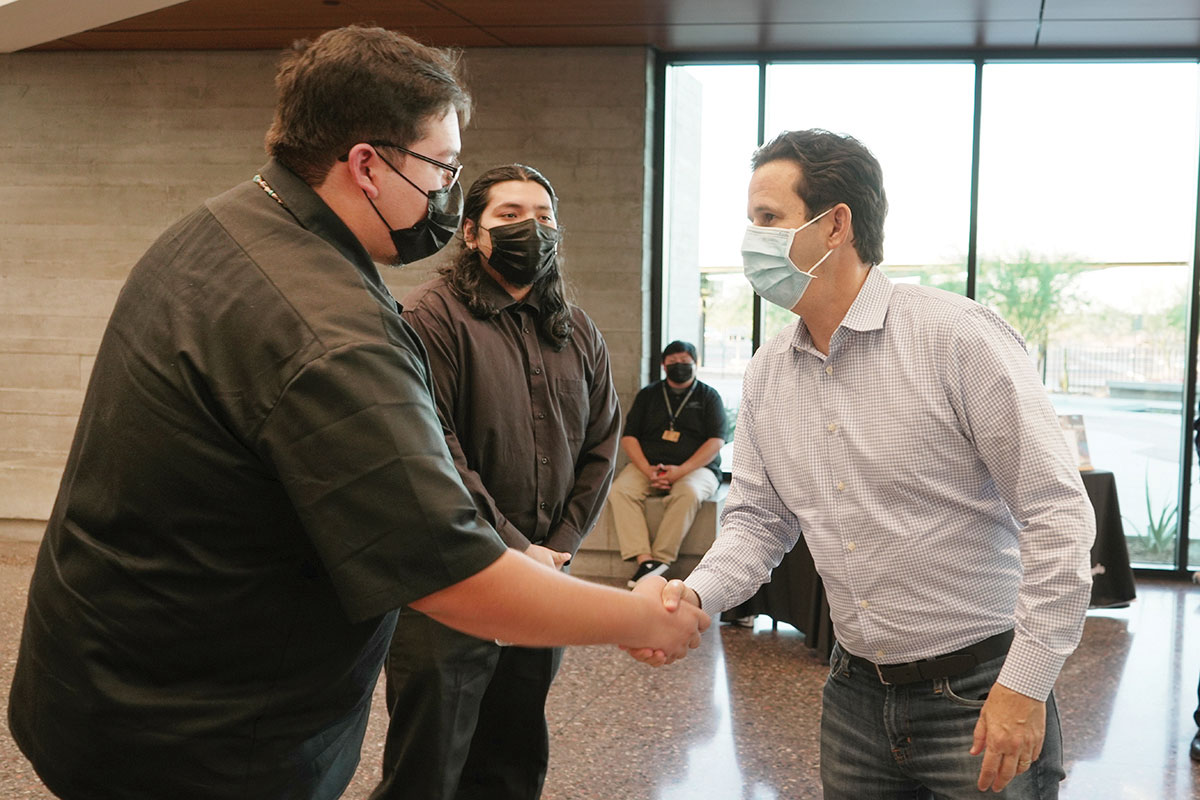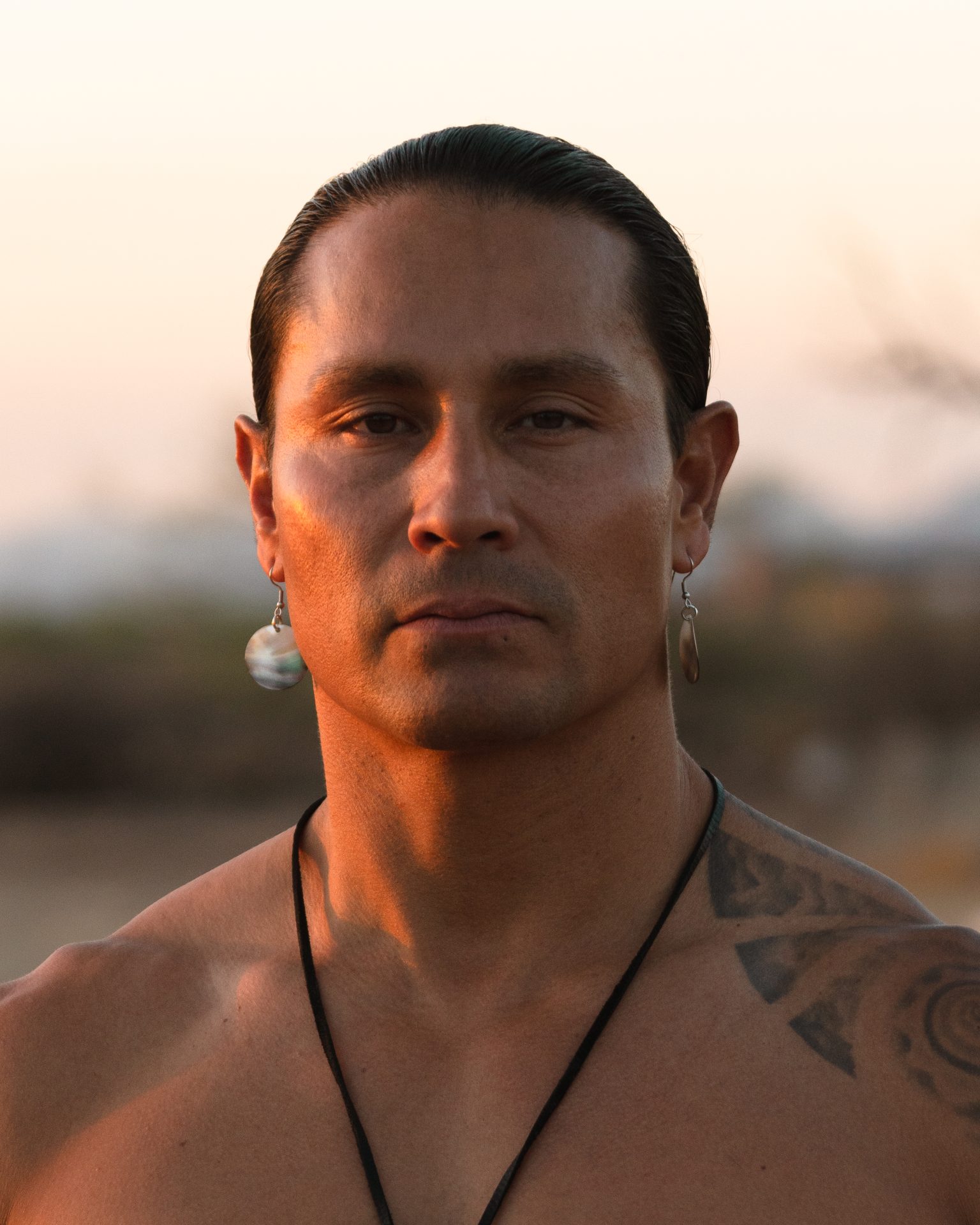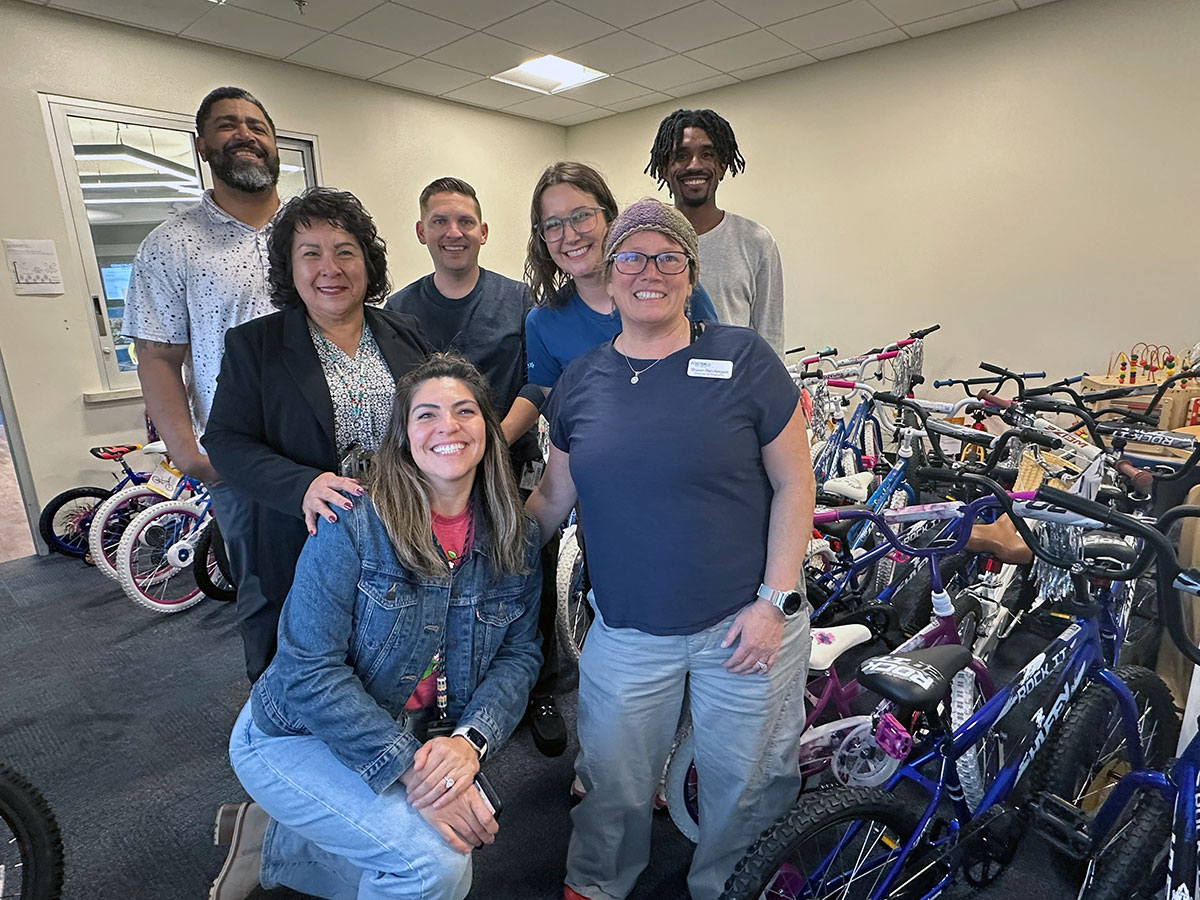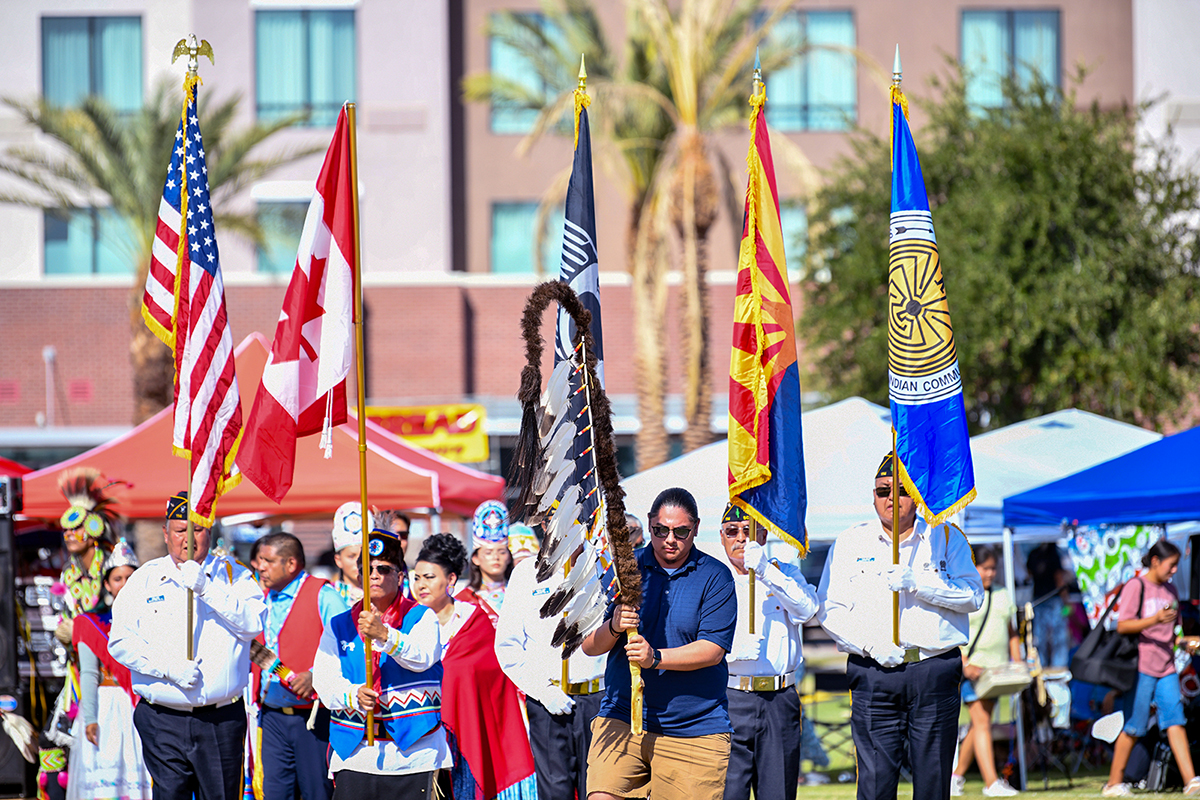VIEWS: 2133
November 2, 2022U.S. Senator Brian Schatz Visits Community
Salt River Pima-Maricopa Indian Community President Martin Harvier, staff from the Office of Congressional and Legislative Affairs, members of the Young River People’s Council and staff from the River People Health Center met with U.S. Senator Brian Schatz (D-Hawaii) on Friday, October 14, at the River People Health Center to discuss a few issues that the Community is facing today.
Senator Schatz is the chairman of the U.S. Senate Committee on Indian Affairs, and he wanted to visit a Native American community on his trip to Arizona.
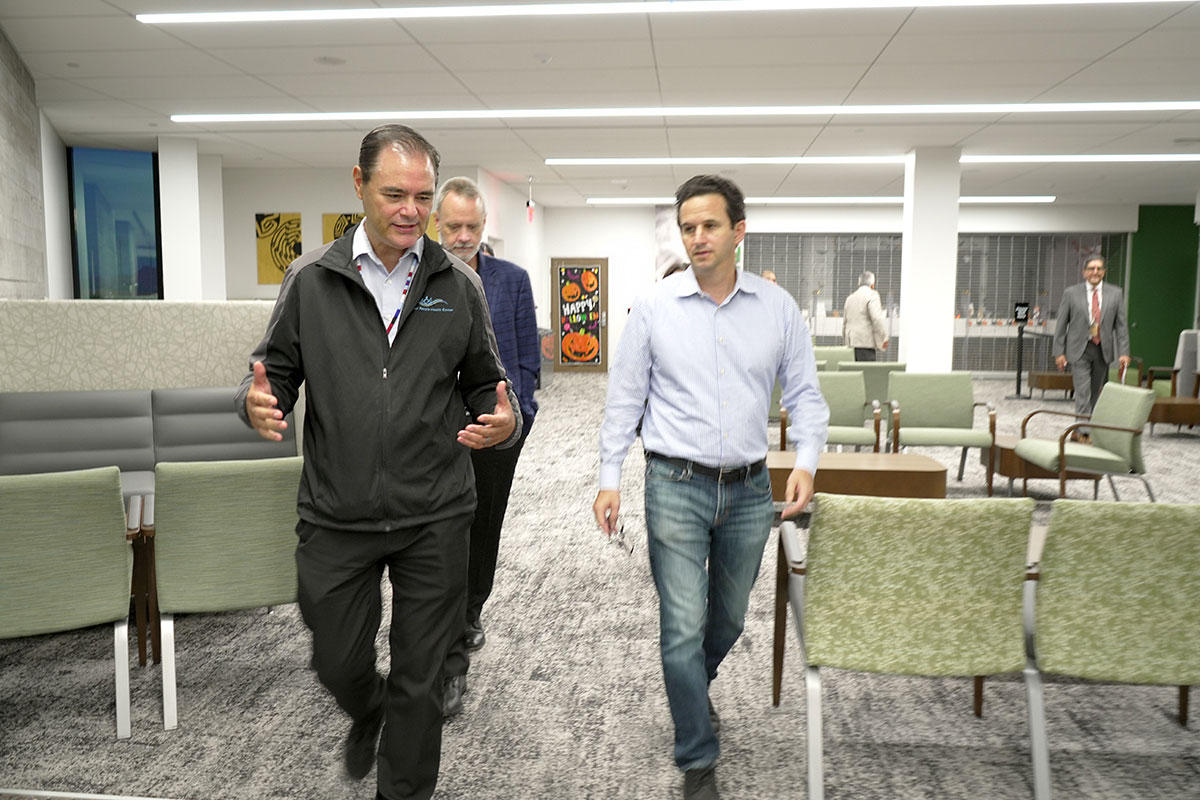
“He’s a powerful member [of the Senate], and just to be able to share some concerns with him is good for the Community,” said SRPMIC Special Assistant for Legislative Affairs Gary Bohnee. “He has the power to do a lot, and with his staff here, to follow up. It’s always important to make sure that we [inform] people like the senator [about] our issues. It’s always good to educate [them] because I don’t think he’s [too] familiar with Arizona.”
The visit started off with a meet-and-greet. SRPMIC President Martin Harvier welcomed Senator Schatz and explained the history of the Community and how the two tribes came to be as one.
President Harvier discussed three issues that the Community is facing: grave looting in the Tonto National Forest, the Land Buy-Back Program for Tribal Nations, and concerns with the Federal Aviation Administration (FAA) regarding the flight paths over the Community.
Recently, three individuals were caught looting graves in the Tonto National Forest, which borders part of the Community to the east. Although the Community was listed as a victim in the case, the Community was not notified until after the plea agreement was made with the three individuals.
“We weren’t the only victim listed,” said Harvier. “Gila River and the San Carlos Apache Tribe also were listed. But it was just the process that was very disappointing, that we weren’t involved until plea agreements were made. We did not have the opportunity to attend the hearing.”
For years, tribes have not been brought in on decisions relating to the prosecution and punishment of crimes on tribal land or that involve them. This case was another example.
The second issue is that the SRPMIC land is some of the most highly fractionated tribal land in the country, explained Harvier, “and with the Land Buy-Back Program after the Cobell case, it was very beneficial to us as a Community. We received funding to [consolidate] some of those highly fractionated [land] areas [so we could] bring those into the tribe and actually use them for development for our members. [I wish we could receive] continued support [for] that,” said Harvier.
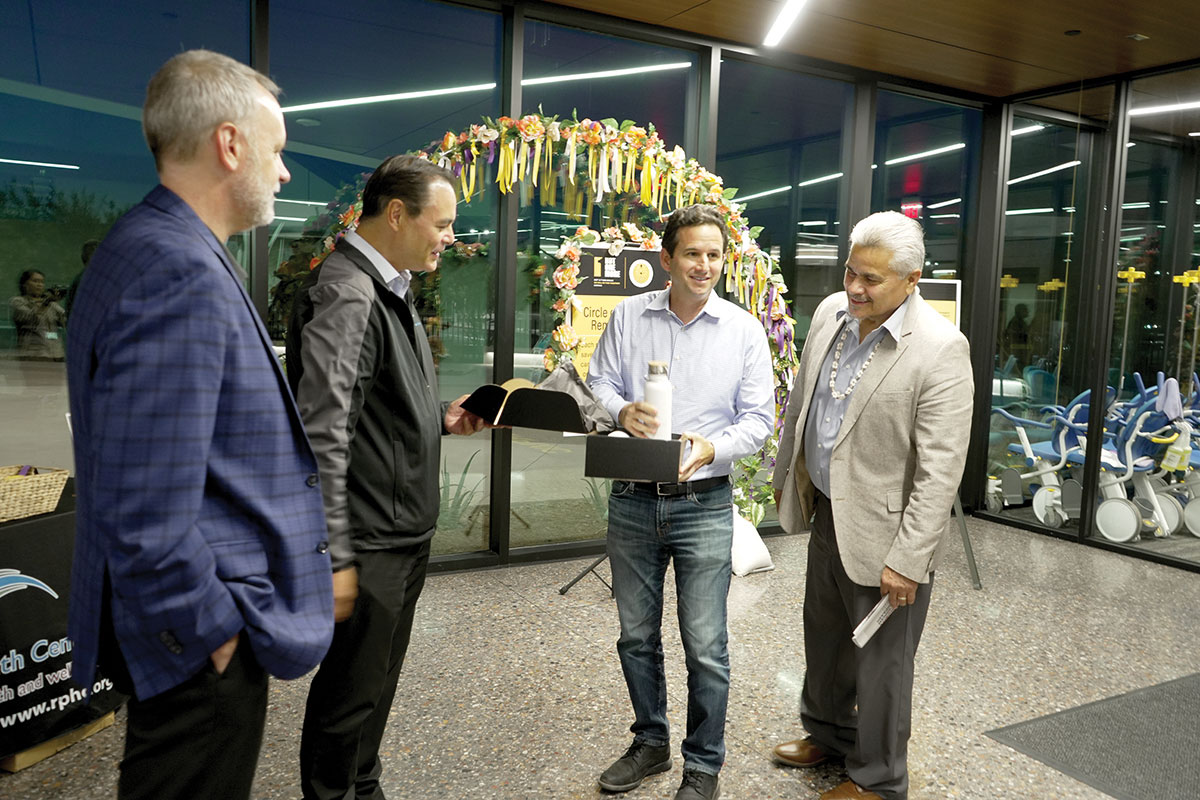
The Land Buy-Back Program is operating on a continuing resolution, but as a policy issue it’s important to know how Congress can work with tribes on the land fractionation issue, explained Bohnee.
“The Department of the Interior put in place right-of-way regulations and land regulations that may get really cumbersome for the Community here, for people [who want] to get homesites or [obtain] right-of-way for any kind of development,” said Bohnee.
The final issue involved FAA flight plan regulations. Years ago the Community expressed its concern to the FAA following a lawsuit filed by the City of Phoenix. The FAA changed flight paths without public comment and now there are flight paths out of Sky Harbor International Airport that pass directly over the Community. Recently the Community has been working with the City of Scottsdale over the same concern.
At Sky Harbor, many flights take off to the east, and sometimes that brings them over the Community. “In the past, [departing planes] used to [fly] out past the development area and kind of made their turn [when they were] over the Tonto National Forest,” said Harvier. “Well, we’ve noticed that they fly directly over our Community.” Not too long ago, a plane over Los Angeles had an emergency and it dumped fuel right over a school. “That’s the concern that we have here: What if something like that happened over the Community? We have a lot of open ground, but we do have homes throughout our Community,” Harvier said, emphasizing that the FAA needs to inform the Community about flight path changes in the interest of public safety.
Senator Schatz and his staff discussed ways to bring these issues before the Indian Affairs Committee to be resolved.
“These are some issues we’d like to get resolved, but I think there are larger policy issues,” Bohnee said. “We’ve had several members of Congress visit the Community, and it’s important that we put a face on our issues when they are actually here, versus meeting in D.C.”
Ending the visit, SRPMIC Health and Human Services Director Joseph Remitera led a tour of the River People Health Center, explaining to Senator Schatz and his staff how this new healthcare facility is benefiting not only the Community, but other tribal communities in the region.

